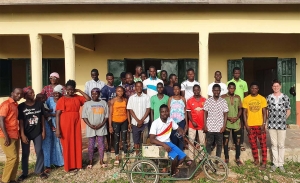Another important reason for the trip to Ghana by our board member, Christoph Wenzl, was the organization of the further project steps. But before any further measures can be taken it was essential to meet all the relevant authorities.
First up here are the Chiefs. Those are the traditional, royal rulers in Ghana and have many responsibilities beyond their important representative function. They regulate many local affairs and act as judges at this level. They also make decisions about land ownership. 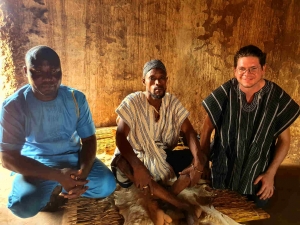
Christoph, together with our project partner Alhassan Salifu, met two chiefs during his visit: the chief of Saguli and the chief of Gbalahi, who is superior to the former. These visits follow a strict protocol. First, the assemblyman of the village announces the guests. Only when the chief is ready are the guests allowed to enter the palace. Then kola nuts are traditionally presented as a tribute. According to Christoph’s personal opinion, this can only be due to traditional reasons and certainly not because of the very bitter taste of the nuts. After the introduction by the assemblyman and a greeting from the chief, visitors can express their concerns. But because all this was in the local language Dagbani, our German representative didn’t understand very much. Fortunately, our local project partner, Alhassan, interpreted. It was noticeable that the chief very often used proverbs to express his thoughts. In an almost poetic way, he showed his gratitude for our commitment. He finds it extremely important that young people in his area now have easier access to education.
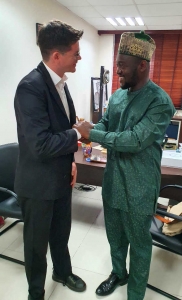 In addition to the chiefs, there are also democratically elected authorities in Ghana. Christoph paid them a visit, too. First, he met the municipality chief executive for the Sagnarigu district, Mohammed Yakubu Ahmed. He was also delighted with our project.
In addition to the chiefs, there are also democratically elected authorities in Ghana. Christoph paid them a visit, too. First, he met the municipality chief executive for the Sagnarigu district, Mohammed Yakubu Ahmed. He was also delighted with our project.
However, to meet the next one on the list, the member of parliament for the Tamale North constituency, Christoph and Alhassan had to travel to the capital, Accra. There, Alhassan Suhuyini welcomed them to his office and was so happy with the work of the Taha School project that he promised to donate the furniture when the school was expanded.
Another visit to Accra took place in Ghana’s most important political building, the Flagstaffhouse. There our representatives met with Dr. Samuel Frimpong, the Vice President’s adviser in economic affairs. Delighted with such a great project, he welcomed them between meetings and promised his support for anything needed.
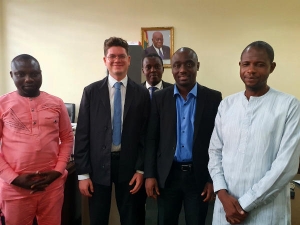
As you can see, there were some important appointments for Alhassan and unsurprisingly they were very tired afterwards. But it was definitely worth it, because with the support of all important authorities, nothing will stand in the way of further project steps.

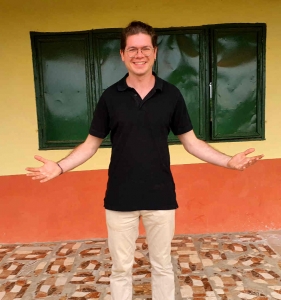
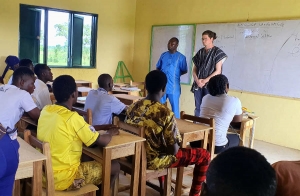 The teachers were also happy to get to know the guest from Germany and thanked them several times for the commitment of the Taha School project. They spoke of an incomparable project. Because the remedial classes in Taha give the students a second chance in life that they would never have gotten otherwise.
The teachers were also happy to get to know the guest from Germany and thanked them several times for the commitment of the Taha School project. They spoke of an incomparable project. Because the remedial classes in Taha give the students a second chance in life that they would never have gotten otherwise.